From 500 cubic meters of product Dippanels.ro swallows around 12-15 cubic meters per month
I had arranged to meet for a discussion with Alexandru Puchianu at 1.30 after noon at the Dip Panels headquarters in Zărnești. He was coming from a meeting. I had called him that morning, in a bit of a hurry, to see if we could set up the meeting that very day. He asked for half an hour to give me an answer and probably to rearrange his schedule. Half an hour later he confirmed the appointment.
We arrived a little early. Right at 1.30 he arrived, just as we had arranged, and we quickly went on a tour of the factory. For those who didn't see first issue of the Wood Magazine, Alexandru Puchianu is the manager of Dip Panels, a company with a long history in the production of wooden panels, which has bravely entered the online market. Dippanels.ro sells stairs and table tops, among other products.
I say boldly because online sales are not a large percentage of Dip Panels sales. They make solid core panels and almost all sales are to companies that use the panels as raw material. 901TPTP3T of sales are export. "At the moment we are active in markets like Germany, Luxembourg, England, Holland, France. In fact, there's not a corner of Europe where we don't have products, even if they don't go everywhere directly. Austria, Hungary, Switzerland, Germany, Luxembourg, Czech Republic, Slovenia are countries where we deliver directly. Even in the UK we deliver direct. The Romanian market is not yet ready for our products. From 500 cubic meters of product Dippanels.ro swallows around 12-15 cubic meters per month. What I mean to say is that the ratio is insignificant taken in broad terms. But we test and we also do it as a hobby.”

We'll bring in 24 people from Sri Lanka
Dip Panels has long-standing collaborations with external partners, with some of them for 20 years. Export demand is very high, but Dip Panels is working at only 301TPTP3T of capacity. "These are the limitations Romania offers in terms of labor and raw materials. Assets and investments are large, but unfortunately, we have no one to operate them with and, last but not least, we cannot operate them in a profitable manner, because that is what business is all about.”
One of the problems facing Alexandru Puchianu is the lack of labor. But that's no news to anyone. And because he can't find people here, he's trying to recruit them from elsewhere. "We are trying to bring staff from Sri Lanka. We're bringing in 24 people. We are working with agencies. We have to give them accommodation, meals, all the conditions. We've done many experiments looking for people here, all unsuccessful. We've also tried the Labor Force without success. Unfortunately, we are competing with the car industry and the State in this respect and it is very difficult, if not impossible, to recruit from Romania.”

We have forests that have long since reached felling age and are rotting on foot because there is no access
In the wood industry, the pressure of rising raw material costs has created problems that are difficult to solve. This sensitive subject is generally avoided by people in the industry. Not by Alexandru Puchianu, who does not see a rosy future for the companies and people active in the sector. "The timber outlook is gloomy. The raw material with its pressures from the state and society - which are not always justified - is a major problem. And we often come up against this current - "you cut the forests, it's you who are to blame". The problem is the source. Everybody comes and blames the timber processor forgetting that the timber processor does not make money from timber. The only one who makes money from wood is Romsilva or whoever sells the forest. The rest just adds value through labor, through technology, by transforming wood into another product. But they don't make money from wood. Even the logger in the forest does not make money from wood. He makes money from the services rendered. The fact that loopholes have been left for theft ... yes that's right, they exist and they must be stopped ... they should have been stopped. The biggest burden and the biggest culprit in this system is the state through the forestry agencies. They always cut what is visible, where it is accessible. Because Romsilva fails to build roads. We have forests that have reached the felling age a long time ago and that are being damaged on foot because there is no access. No one is going to go and dig wood out of the heart of the forest to sell it for 100 euros, twice as much as in Germany, where the forest is on the plan. No one will buy it. In these conditions we try to survive as a business. For those who want wood only in the forest, I have this message: imagine life without the wooden objects around you.”

In these circumstances Dip Panels is increasing margins, reducing the volume of goods produced and refocusing. "We need to diversify, to work with high added value. We prefer to reduce volumes, to redirect to another business segment if wood is no longer an option. Plans are no longer made for 6 months or a year. Now plans are made monthly or even every 2 weeks. The companies around us are closing and plans are made as things happen in the market.”
We invest everything we earn in marketing
In an industry very unfamiliar with marketing and diversifying sales channels Dip Panels is investing considerable sums in online marketing. The willingness to discover new and simple ways to quickly reach the end customer is visible and commendable. "Just think that we today are not interested in Dip Panels profit. We invest everything we earn in marketing. If we have raised 3 lei over costs we invest it in marketing ... and think that we do it for the benefit of all. Why do I say that? Because today we are promoting some wooden boards as pioneers in this market, more by educating the market. People are getting useful information, and we, being in the early days of online commerce, are working hard to create the portfolio, to let people see what it looks like. But we're doing it because we believe that in order to last into the future, we need an educated marketplace. We're doing it to get directly to the end customer. We believe that DIY stores have too high margins, while at the same time not paying the right price for this type of product. Today we see working at dippanels.ro as a hobby that inspires us and gives us confidence in the future. Dippanels.ro is not just countertops and steps for us. It means an experience that we will certainly use in the future much more deeply than we do today.”

And if you're wondering what kind of results dippanels.ro has in terms of transactions, Alexandru Puchianu makes no secret of it. "I think we get, on average, about 3-4 customers a day from online. It's just end customers. We don't have price campaigns for, for example, fitters. The traffic on dippanels.ro generally comes from Google and Facebook, around 1000 sessions/day. We run campaigns on both Google AdWords and Facebook. We pay more for Google AdWords campaigns. We reached 30,000 lei/month in this case.”
Our priority is to educate the market about solid wood
Alexandru Puchianu believes that Romania needs an informed population in all areas, including timber. That is why he encourages us to continue what we are doing. "To directly help us, the whole industry and you - because Wood Magazine needs wood lovers and to love wood they need to know about it - there should be more promotion of wood as a material, to understand why it is good to use wood, what all the advantages are and in this way people should be informed and be willing to assume a number of disadvantages. I believe that this is the priority of all of us who are active in this field, to educate the market about solid wood. We do not have this culture because, in the past, very little solid wood furniture was sold in Romania.”

Alexandru Puchianu is the kind of manager who is open to the new and therefore open to its challenges. More entrepreneur than factory manager, he tackles problems by looking for sustainable solutions. He leads proactively by taking decisions that strengthen the business. In the wood industry he blazes trails that others will probably try.





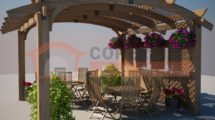






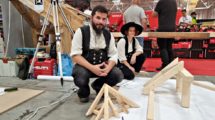

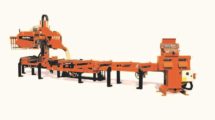

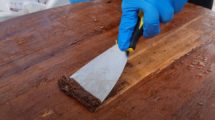






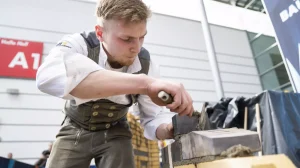
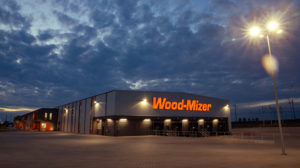


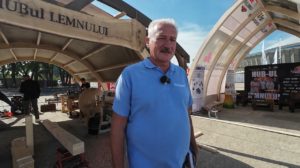



. "We are trying to bring in staff from Sri Lanka. We're going to bring in 24 people. We are working with the help of agencies. We have to provide them with accommodation, meals, all the conditions. We have done a lot of experiments looking for people here, all unsuccessful. We've also tried the Labour Force without success. Unfortunately, we are competing with the car industry and the State in this respect and it is very difficult, if not impossible, to recruit from Romania." What about salaries, Mr Dan?
Hello,
I don't have information about Dip Panels salaries. I think if you are interested you should contact Dip Panels directly.
Contact details below:
Tel: +40 0756 124 124
3 Campului Street. 505800 Zărnești, Brasov
contact@dippanels.ro
or you can send your message using the contact form in the link below
http://www.dippanels.ro/contacts
All the best.